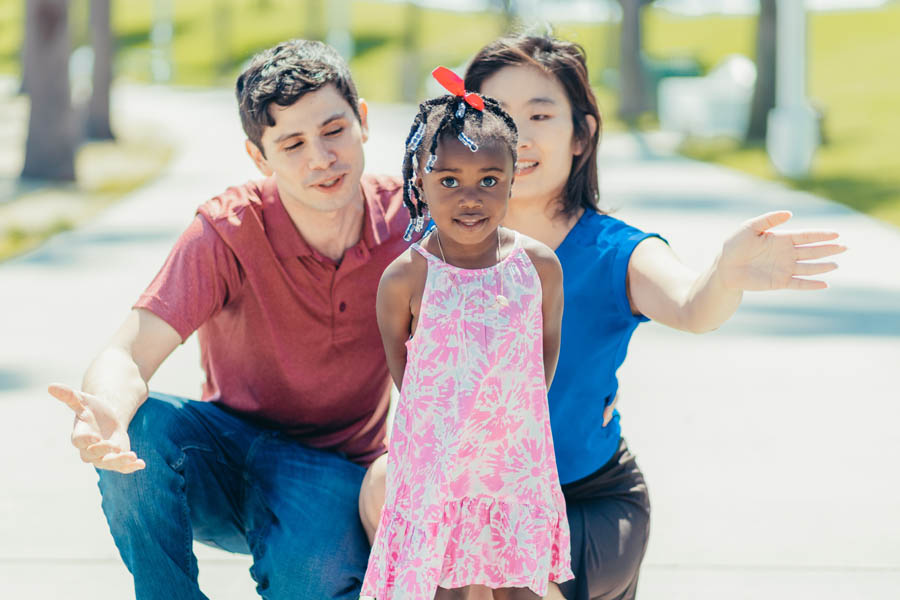In general, you don’t even realize it - until you stop and think about it. You’re walking among holes. They are everywhere.
Certainly they are felt by the women who have aborted their babies. Ever-present holes – where lives once lived.
Over 63 million holes created since 1973 – just here in the U.S.
But it’s the hole that doesn’t exist that makes me think so much about the holes that do.
[Click here to subscribe to Pregnancy Help News!]
She is my friend, and she was adopted. I can’t think about her beautiful, fulfilled life without also thinking about her not being here. She is the life many women can’t see as they weigh out their pregnancy choices; unwilling to even give adoption a space on the scales.
I imagine the hole – the one that would exist in her place if my friend’s mother had chosen differently. I imagine all that would be erased – her children, her role in her family, her wise words, the love and joy she brings to the lives around her. All erased – leaving a hole instead.
I could tout the likelihood of aborted lives that could have cured cancer or led our nation, but you don’t have to go grand to feel the weight of loss. A hole of any size is still a hole.
Abortions create holes everywhere – in families, in future generations, in society as a whole. Around your dinner table, in your circle of friends, among your team at work – they’re everywhere.
If we could see the holes that post-abortive women feel, maybe our culture would look at abortion differently. If we all had to live with the loss, in a visual, space-taking way, maybe we would seek a way that would leave no holes.
A way that honors the biological mother and the baby. A way that respects the biological mother’s decision to neither parent nor have an abortion. The way is adoption.
While adoption is technically a parenting decision and not a pregnancy decision, many women choose abortion because of the impending parenting outcome. They don’t want to parent, they’re not ready to parent, or they feel they’re incapable of parenting well, so they choose abortion.
The lure of secrecy that abortion provides is absent with adoption. Adoption requires her to carry her pregnancy to completion. She will be seen. Her pregnancy, and her parenting decision, will be known.
Adoption has its pain, even without public opinion; there’s nothing light about this choice. It brings with it the constant reminder that there is a part of her out in the world somewhere - yet not with her. It also brings truth: she gave her child life; nothing else matters without life.
Even so, adoption is the rarer choice among unwanted pregnancy options.
In the U.S. in 2019, there were 629,898 abortions compared to 120,869 adoptions.
It’s a significant difference, and it creates a lot of holes.
And many voices make this so. She hears the reassuring words: “I’ll support you - whatever you choose.”
Spoken from the mouth of her closest confidant – be it her mother, the father of her baby, her girlfriend, her sister. Whomever she has allowed in her inner circle.
But dig deeper and that’s not true.
Parent? Sure, we’ll help you. Abort? Fine, we’ll stand beside you. Create an adoption plan? Oh no, we won’t do that.
I’ve heard it again and again.
Combined with her own thoughts and fears, this loud and clear message leaves her with two options for her unplanned pregnancy: a child she’s not ready to parent, or a hole from an abortion.
The problem isn’t the lack of adoptive parents; there are 2 million couples currently waiting to adopt in the United States. The problem is the way she, and those around her, think and feel about adoption. That’s heavier.
For the woman facing an unplanned pregnancy, she expects judgment, from herself and from those around her if she chooses adoption. What kind of woman just gives her baby away? Adoption will never be valued while she thinks this way.
If we genuinely see the beautiful value of adoption, what can we do to help her see its beauty in the moment she’s making her pregnancy decision? How do we impact the way adoption is viewed in our culture?
First, we should look at ourselves and our thoughts.
Do we view the mothers who choose adoption over abortion as heroic, recognizing the birth mothers’ brave love?
Do we trust her, even when she’s part of our own family, to make a decision to choose adoption for the child she births?
The answers tell us how we really feel about adoption.
Another way we esteem adoption is by speaking differently about it, even when there’s no pregnancy decision on the table. Ideals are created far before an unplanned pregnancy requires an answer. The idea of adoption is beautiful and lifesaving. It has a worthy place in our conversations surrounding unplanned pregnancies.
It is in these conversations, with full awareness that abortion ends lives and creates holes, that we can agree there is a better way.
We don’t have to see the holes to know it. We know they are there – all 63 million of them. They all deserved a better option.
Adoption – as a valued option for the birth mother and her family – is a better answer. And it’s an answer worthy of our voices.
Tweet This: Adoption – as a valued option for the birth mother and her family – is a better answer. And it’s an answer worthy of our voices.







